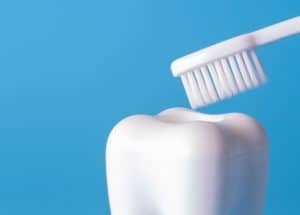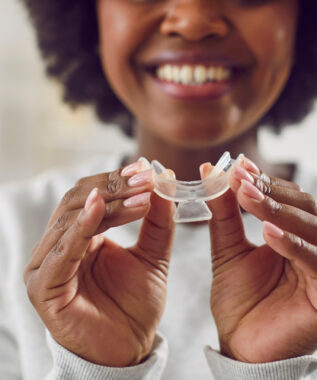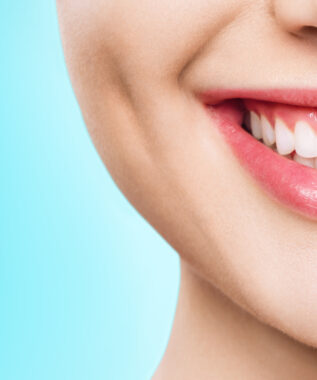 Consistent care and maintenance are essential parts of your oral health care in more ways than you realize. For example, most notably, consistent dental hygiene improves your chances of avoiding the development of an oral health concern, like tooth decay and gum disease. However, if prevention fails and you need a restoration, it doesn’t mean your need for consistent care is over. On the contrary, it’s even more important to be diligent about caring for your natural teeth and restoration to preserve the rest of your oral health.
Consistent care and maintenance are essential parts of your oral health care in more ways than you realize. For example, most notably, consistent dental hygiene improves your chances of avoiding the development of an oral health concern, like tooth decay and gum disease. However, if prevention fails and you need a restoration, it doesn’t mean your need for consistent care is over. On the contrary, it’s even more important to be diligent about caring for your natural teeth and restoration to preserve the rest of your oral health.
What type of restoration do you have?
Today’s dental restorations come in all shapes and sizes, and are designed to address a wide variety of oral health concerns. For instance, if you have a cavity in your tooth as the result of tooth decay, then you may have had it treated with a tooth-colored filling. If your tooth is damaged, then the composite resin may have been used to restore the chip or crack. Or, you may have had a dental crown placed over the tooth to restore it and stop the damage from growing worse. The type of restoration you have depends on the type of concern with your tooth. However, the good news is that most restorations are designed to be highly lifelike, and to make caring for your smile in the future as convenient as possible.
Tips for caring for your teeth and restoration
- Daily hygiene with your restoration – Good dental hygiene shouldn’t stop just because you’ve needed a tooth restored. Fortunately, many restorations are designed to blend in with the appearance and contour of your smile, making dental hygiene easier to practice on a consistent basis. Be sure to thoroughly brush your teeth and restoration at least twice a day to remove harmful plaque buildup, and to floss at least once for optimal cleanliness.
- Being conscious of your restoration – Daily brushing and flossing will help you keep your restoration and remaining healthy teeth clean. However, both your teeth and restoration may be susceptible to damage if you don’t take care with them. For example, grinding your together constantly or chewing on ice habitually can expose your teeth and restoration to excessive pressure and friction. You can reduce the risks of damaging your restoration by avoiding such things.
Learn more about caring for a dental restoration
If you’ve had one or more teeth restored with a custom restoration, then how you care for the restoration and your teeth will play a big role in your long-term oral health. To learn more, schedule an appointment with us by calling Dreem Dentistry in Leawood, KS, today at 913-681-5500.






